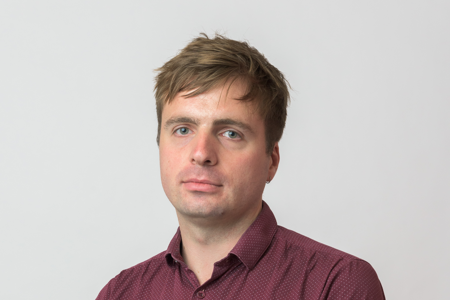
Michael Goodier
The Guardian
Michael’s story entries and broader portfolio display his ability to analyse and contextualise complex data and to build datasets from previously unstructured information, in order to write stories that help readers understand societal change.
The Guardian’s investigation on the rapid growth of private equity investors behind nurseries in England is the most comprehensive analysis on the topic to date. The resulting front-page news article was the first detailed analysis of its kind in the UK. The methodology behind it has been reused to break more stories within the Guardian and was acclaimed by sectoral experts and institutions.
The story, the result of a months-long investigation with Michael’s data colleague Carmen Aguilar García, was strengthened by the sectoral and political expertise of journalists Alexandra Topping and Heather Stewart. It prompted warnings that the stark increase of private equity firms in the childcare sector could leave thousands of nurseries at risk of closure.
Unpicking the complex company structure of the childcare providers’ owners required a deep dive into companies' accounts, using his data and investigative skills to match and classify thousands of companies in Ofsted’s childcare census to Companies House entries.
The investigation into the decline in England’s leisure facilities demonstrated how cuts to local authority spending over the last decade have impacted health in some of the most deprived areas. Using R code, Michael analysed Sport England’s data on facility locations, combining it with government data on deprivation to demonstrate a net loss of almost 400 swimming pools since 2010.
The analysis showed that those parts of the country with greatest health needs have lost out the most. Using an established method Michael was able to calculate the social cost of the loss of these pools: £1bn in estimated lost social benefits over the decade.
Shortly after publishing, chancellor Jeremy Hunt confirmed a £63m package to support publicly-owned leisure centres with pools. The investigation into crowdfunding to pay for private medical care first required Michael to develop a web-scraping robot to pull down large amounts of data from a complex website over a period of two months.
Using GoFundMe as a source of data, the investigation helped to reveal the human stories behind the oft-cited NHS waiting list statistics – children waiting for urgent brain surgery, sportspeople whose careers were threatened by injury, and large numbers of people crowdfunding for private treatment for gender-affirming surgeries. The technique of web scraping produced a sense of the volume of crowdfunders which, when combined with other data provided by the company, demonstrated a large spike shortly after lockdown, and a sustained higher level as waiting lists rose.